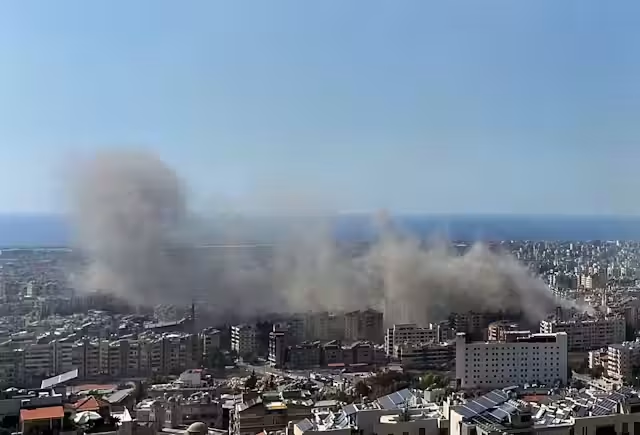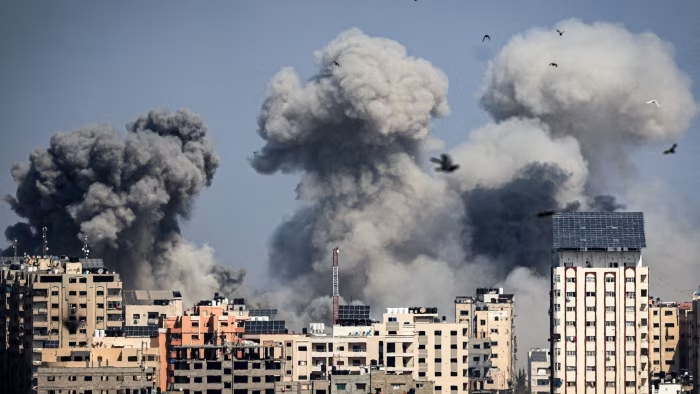The Middle East is seeing a surge in violence, and tensions are higher than ever. From Israeli airstrikes in Syria to clashes between Syrian government forces and local militias, the region feels like it’s on the edge of a bigger conflict. This takes us to the question: Why is this happening?
Below is the break down of the recent developments and the reasons behind this escalation.
What’s Happening in the Middle East?

- Israeli Airstrikes in Syria: Recently, Israel launched airstrikes on Damascus, Syria’s capital. These attacks hit military sites, killing at least one person and injuring 18 others. Israel said the strikes were to stop weapons from reaching groups they see as threats, like Hezbollah, a militia group backed by Iran. These strikes aren’t new, but they’re happening more often and hitting bigger targets, raising fears of a wider war.
- Clashes in Southern Syria: In Syria’s south, fighting has broken out between the Syrian government and Druze militias in the Suweida region. The Druze, a religious minority, are clashing with government forces over local control and rights. Syria’s new president, Ahmed al-Sharaa, has promised to protect the Druze to avoid a full-blown conflict, but the situation is tense, and a fragile ceasefire is barely holding.
- Iran’s Role and Regional Tensions: Iran, a major player in the region, supports groups like Hezbollah in Lebanon and militias in Syria. Israel and some Arab countries see Iran’s influence as a threat, leading to frequent attacks on Iranian-linked targets. This back-and-forth is pulling in other countries, like the U.S., which supports Israel, and Russia, which backs Syria’s government.
- Refugee Crisis and Economic Strain: The fighting is pushing more people out of their homes. Millions in Syria are already displaced, and new clashes are making things worse. Countries like Lebanon and Jordan are struggling to handle refugees, while economic problems, like rising food and fuel prices, are fueling anger and unrest.
Why Is the War Escalating?

So, why is this all heating up now? Here are the main reasons, explained simply:
- Power Struggles Between Countries: The Middle East has long been a battleground for big powers. Israel wants to limit Iran’s influence, while Iran is trying to expand its reach through allies like Hezbollah. The U.S. and Russia are also involved, backing different sides. Each country is pushing its own agenda, and that’s creating a cycle of attacks and counterattacks.
- Weak Governments and Chaos: Syria’s government is struggling to control the country after years of civil war. When a government is weak, groups like militias or neighboring countries step in to fill the gap. This leads to more fighting as everyone tries to grab power or protect their people.
- Old Rivalries and New Weapons: The Middle East has deep-rooted rivalries, like between Israel and Iran or Sunni and Shia Muslim groups. These tensions go back decades, but now, with advanced weapons like drones and missiles, small conflicts can quickly turn deadly and spread.
- Economic Pain and Anger: People in the region are suffering. Jobs are scarce, prices are high, and many can’t afford basics like food or medicine. When people are desperate, they’re more likely to join militias or protest, which can spark violence. Governments, under pressure, sometimes use force to keep control, making things worse.
- Outside Interference: Countries outside the Middle East, like the U.S., Russia, and even Turkey, are involved in the region’s conflicts. They send weapons, money, or troops to support their allies. This outside involvement often makes local fights bigger, as foreign powers have their own goals, like controlling oil or gaining influence.
What’s Next?
The situation is shaky. If Israel keeps striking Syria or Iran-backed groups, it could pull Lebanon or other countries into the fight. If the Syrian government can’t calm things down in Suweida, more militias might rise up. The world is watching, but peace feels far off because the reasons for fighting: power, fear, and survival, are so deeply rooted.
To stop the escalation, leaders would need to talk, not fight. But with so much distrust, that’s easier said than done. For now, the Middle East remains a powder keg, and every new strike or clash risks setting it off.
Discover more from LN247
Subscribe to get the latest posts sent to your email.



Comments are closed.